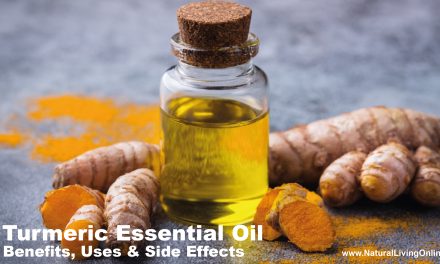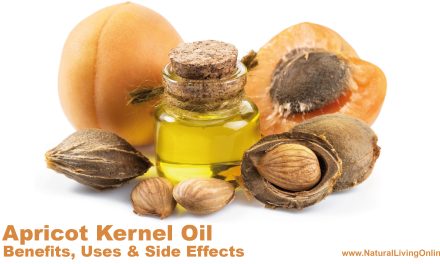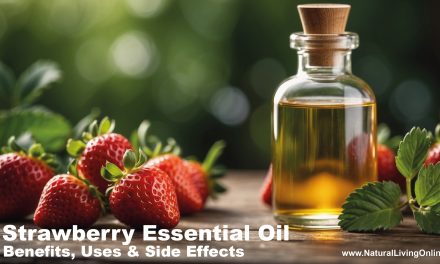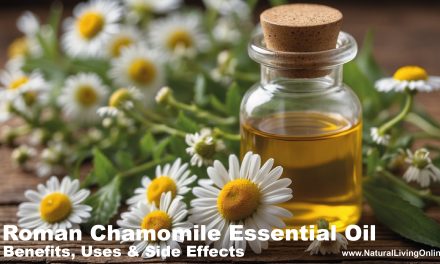Ginger essential oil is extracted from the root of the plant Zingiber officinale. It has a wide range of uses, from alleviating nausea and indigestion to helping improve circulation and treating inflammation. The main compounds in ginger essential oil are Gingerol and Zingiberene. Gingerol is responsible for the oil’s spicy, pungent aroma and is also thought to be its main therapeutic compound. Zingiberene has a sweet, woody aroma and is believed to contribute to the oil’s anti-inflammatory properties.
What is Ginger?
Ginger is a flowering plant that originated in China. It has been used for centuries in Traditional Chinese Medicine and Ayurveda for its medicinal properties. The plant grows to a height of around three feet and has narrow, lance-shaped leaves. The flowers are small and yellow, and the fruit is a greenish-yellow drupe. The ginger root is the part of the plant that is most commonly used for its medicinal properties. It can be consumed fresh, dried, or powdered, and is also available in capsule form.
Types of Ginger roots:
1. White Ginger Root: White ginger root is the most common type of ginger root used in dietary supplements and essential oils. It is harvested when the plant is around one year old and has a milder flavor than other types of ginger.
2. Yellow Ginger Root: Yellow ginger root is harvested from plants that are two to three years old. It has a higher concentration of gingerol than white ginger root and a more pungent flavor.
3. Red Ginger Root: Red ginger root is harvested from plants that are four years or older. It has the highest concentration of gingerol and the strongest flavor.
4. Blue Ginger Root: Blue ginger root is a rare type of ginger that is only found in the mountains of China. It has a sweet flavor and is used in traditional Chinese medicine to treat a wide range of conditions.
How Ginger Essential Oil is made?
Ginger essential oil is made by steam distilling the root of the plant. This process helps to preserve the therapeutic compounds in the ginger and results in a high-quality oil.
What is the botanical name of Ginger?
The botanical name of ginger is Zingiber officinale.
The chemical constituents of Ginger essential oil (Ginger Essential Oil Monograph):
Zingiberene (22.8-48.0%), beta-sesquiphellandrene (0.3-3.0%), alpha-zingiberene (0.2-1.5%), farnesene(trace-1.2%), ar-curcumene (trace-0.8%), beta-bisabolene (trace-0.7%), zingiberol (0.1-0.6%), beta-sesquiphellandrene acetate (0.1-0.4%), curcumenol (trace-0.3%), naphthalene (trace-0.2%).
The therapeutic properties of Ginger essential oil:
Analgesic, anti-inflammatory, antispasmodic, carminative, digestive, diaphoretic, expectorant, febrifuge, stimulant, stomachic.
Study conducted in 2022 has shown that the concentration of ginger essential oil (1250 ppm) proved to be the lowest dose to obtain 100% inhibition of fungal growth and spore germination, sporangia formation and leaf necrosis assessment.
source
What are the benefits of Ginger Essential Oil?
Ginger essential oil is thought to offer a range of health benefits due to its unique composition. The main compounds in ginger essential oil, Gingerol and Zingiberene, are thought to be responsible for its therapeutic properties.
Ginger essential oil is commonly used to treat nausea and vomiting. It is thought to work by stimulating the digestive system and increasing the production of saliva and stomach acids. This can help to break down food and ease indigestion. Additionally, the anti-inflammatory properties of ginger essential oil may help to reduce nausea and vomiting by reducing inflammation in the digestive system.
Ginger essential oil is also thought to be effective in treating arthritis pain. The anti-inflammatory properties of the oil may help to reduce inflammation and swelling in the joints. Additionally, the increase in circulation caused by ginger essential oil may help to deliver more oxygen and nutrients to the joints, which can help to reduce pain.
What are the side effects of Ginger essential oil?
Ginger essential oil is generally safe for most people when used topically or aromatically. However, it can cause skin irritation in some people. If you experience any irritation, discontinue use and consult a doctor.
Pregnant women should avoid using ginger essential oil as it can stimulate contractions. Women who are breastfeeding should also avoid using the oil as it can transfer to the baby through breast milk.
Ginger essential oil should not be taken internally as it can be toxic. If ingested, it can cause nausea, vomiting, and diarrhea. If you experience any of these symptoms, seek medical attention immediately.
Possible drug interactions:
Ginger essential oil may interact with blood-thinning medications. If you are taking any medication, it is best to consult with a doctor before using ginger essential oil.
What are ways to use Ginger Essential Oil?
Ginger essential oil can be used in a variety of ways to enjoy its benefits.
To treat nausea and vomiting, add a few drops of ginger essential oil to a diffuser or inhale it directly from the bottle. You can also add a few drops of ginger essential oil to a carrier oil and massage it into your stomach.
To treat arthritis pain, add a few drops of ginger essential oil to a diffuser or apply it topically to the affected area. You can also add ginger essential oil to a bath or massage it into the skin.
To boost the immune system, add a few drops of ginger essential oil to a diffuser or inhale it directly from the bottle. You can also add a few drops of ginger essential oil to a carrier oil and massage it into your skin.
To treat indigestion, add a few drops of ginger essential oil to a diffuser or apply it topically to your stomach. You can also add a few drops of ginger essential oil to a cup of hot water and drink it as a tea.
To make a ginger essential oil compress, add a few drops of ginger essential oil to a bowl of hot water. Dip a clean cloth into the water and apply it to the area of pain. Repeat as needed.
To make ginger foot soak, add a few drops of ginger oil to a foot foot basin full of warm water. Add himalayan pink salt or epsom salt. Soak your feet 15 to 20 minutes. Ginger foot soak is good for a number of foot problems especially for aching and tired feet.
If you’re new to using essential oils, be sure to do a patch test before using them. Apply a small amount of the oil to a patch of skin and wait 24 hours to see if there is any reaction. If you experience any irritation, discontinue use and consult a doctor.
Ginger essential oil should not be used by:
-Pregnant women
-Women who are breastfeeding
-People with sensitive skin
-People with bleeding disorders
-People taking blood-thinning medication
Do not take ginger essential oil internally. If ingested, it can cause nausea, vomiting, and diarrhea. If you experience any of these symptoms, seek medical attention immediately.
Keep ginger essential oil out of reach of children and pets. If ingested, seek medical attention immediately.
How can I use Ginger Essential Oil internally?
Ingesting ginger essential oil is not same as eating fresh ginger. DO NOT take ginger essential oil internally. If ingested, it can cause nausea, vomiting, and diarrhea. If you experience any of these symptoms, seek medical attention immediately.
How can I use Ginger Essential Oil topically?
When using essential oils topically, it is important to use a carrier oil to dilute the oil. This will help to avoid skin irritation.
To make a ginger essential oil compress, add a few drops of ginger essential oil to a bowl of hot water. Dip a clean cloth into the water and apply it to the area of pain. Repeat as needed.
If you’re new to using essential oils, be sure to do a patch test before using them. Apply a small amount of the oil to a patch of skin and wait 24 hours to see if there is any reaction. If you experience any irritation, discontinue use and consult a doctor.
Ginger essential oil should not be used by people with sensitive skin or by women who are pregnant or breastfeeding.
How Ginger Essential Oil helps in aromatherapy?
Ginger essential oil can be used in a diffuser or inhaled directly from the bottle to help treat nausea and vomiting. It can also be used to boost the immune system.
Great Essential Oil diffuser blends for aromatherapy with Ginger Essential Oil:
1. Immune Booster: Add 2 drops each of ginger, rosemary, and eucalyptus essential oils to your diffuser.
2. Cold and Flu Fighter: Add 2 drops each of ginger, lemon, and peppermint essential oils to your diffuser.
3. Motion Sickness Relief: Add 2 drops each of ginger, lavender, and chamomile essential oils to your diffuser.
4. Digestive Aid: Add 2 drops each of ginger, peppermint, and fennel essential oils to your diffuser.
5. Arthritis Pain Relief: Add 2 drops each of ginger, rosemary, and eucalyptus essential oils to your diffuser.
6. Stress Relief: Add 2 drops each of ginger, lavender, and chamomile essential oils to your diffuser.
7. Mood Booster: Add 2 drops each of ginger, lemon, and rosemary essential oils to your diffuser.
How can I use Ginger Essential Oil in bath?
To use ginger essential oil in the bath, add a few drops of the oil to a tub of hot water. Soak in the tub for 20 minutes to help relieve muscle pain and stiffness.
Historical use of Ginger as a herbal medicine:
Ginger has a long history of use for treating a variety of ailments. It is commonly used to relieve nausea and vomiting, and is also thought to be effective in treating indigestion and stomach cramps. Ginger is also a popular remedy for colds and flu, as it is believed to help reduce inflammation and boost the immune system. Additionally, ginger is sometimes used as a natural treatment for arthritis pain, as it is thought to help reduce inflammation and increase circulation.
What blends well with Ginger Essential Oil?
Ginger essential oil blends well with lemon, peppermint, lavender, chamomile, fennel, rosemary, and eucalyptus essential oils.
What is the shelf life of Ginger Essential Oil?
Ginger essential oil has a shelf life of 2-3 years. Store the oil in a cool, dark place away from direct sunlight.
Is Ginger Essential Oil safe for kids?
Ginger essential oil is not recommended for children under the age of 10. If you’re considering using ginger essential oil for a child, it’s best to consult a doctor first.
Can Ginger Essential Oil be used on pets?
Ginger essential oil should not be used on pets. If you’re considering using ginger essential oil for your pet, it’s best to consult a veterinarian first.
DIY recipes using Ginger Essential Oil:
1. Nausea Relief Roll-On: Add 1 drop each of ginger, lavender, and peppermint essential oils to a 10mL roller bottle. Fill the remainder of the bottle with carrier oil and apply to the wrist as needed.
2. Immune Booster Diffuser Blend: Add 2 drops each of ginger, rosemary, and eucalyptus essential oils to your diffuser.
3. Cold and Flu Fighter Diffuser Blend: Add 2 drops each of ginger, lemon, and peppermint essential oils to your diffuser.
This website does not provide medical advice.
All information provided on this website, and on associated social media networks, including but not limited to texts, images, and numbers are for general information purpose only. It is not intended as medical advice and it does not include all possible precautions, side effects, or interactions that may occur. Neither NaturalLivingOnline.com nor its author/founder take responsibility for how you use this information. Statements contained on NaturalLivingOnline.com have not been evaluated by the FDA. You should conduct thorough research via multiple sources and consult your physician or qualified doctor before using any essential oil or herbal remedy. Information on NaturalLivingOnline.com must not be relied upon for medical, legal, financial or other decisions.













